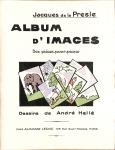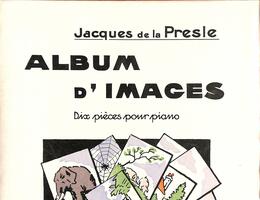Jacques de LA PRESLE
1888 - 1969
Composer
Jacques de La Presle began studying at the Paris Conservatoire, but had to interrupt his education at the start of World War One. A stretcher-bearer at the front, he created an orchestra in the army; his superiors praised his ability “to restore gaiety and good humour” among the ranks. He was gassed in August 1918, and suffered from the aftereffects for the rest of his life. After the war, he resumed his studies and won the Prix de Rome in 1921, with his cantata Hermione. During his stay in the Eternal City, he composed the oratorio L’Apocalypse de Saint Jean. Professor of harmony at the Paris Conservatoire (1937-1958), his pupils included Maurice Jarre, Antoine Duhamel and André Hodeir. He was also artistic director of Radio Paris (1930-1943), then became principal inspector of music education in 1945. His commitment to his teaching activities left limited time for composing. His eighty mélodies or art songs, sung in particular by Camille Maurane, earned him recognition in musical circles. Jacques de La Presle also composed works for chamber music and orchestra (Soir de bataille, “tableau symphonique”). His scores for piano include character pieces, a sonata, a theme and variations, Impressions provençales for piano and orchestra, and a Concerto in D whose movements depict different cities and landscapes. His style showed traces of his admiration for Fauré, Debussy, Ravel and Poulenc. Mindful of clarity, he declared: “I am always drawn towards a simple, more uncluttered style of expression. That is the hardest thing to do in art.”


